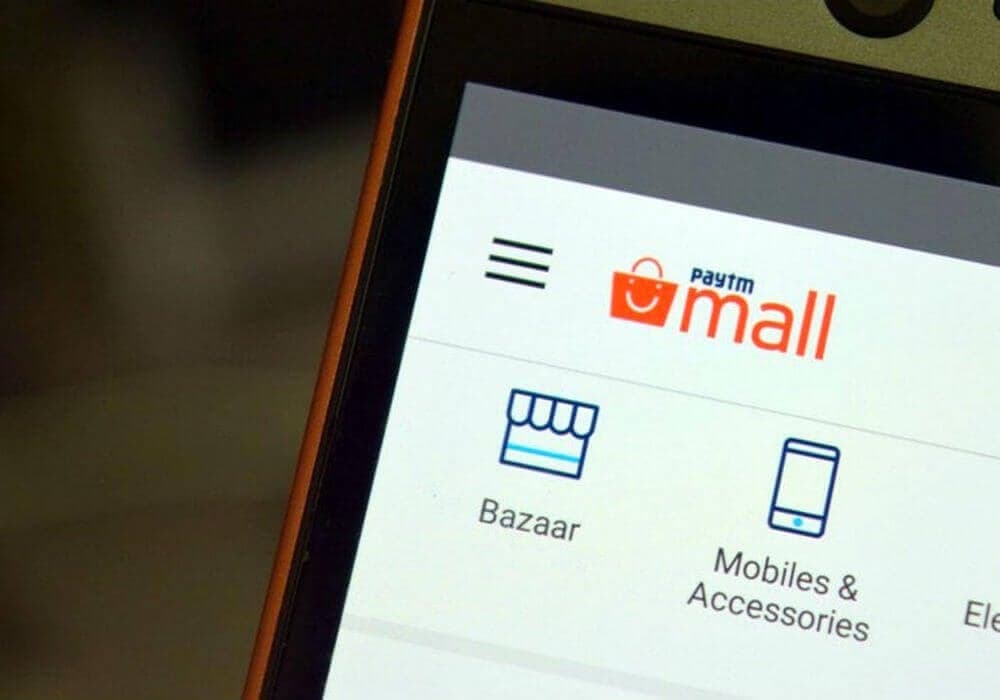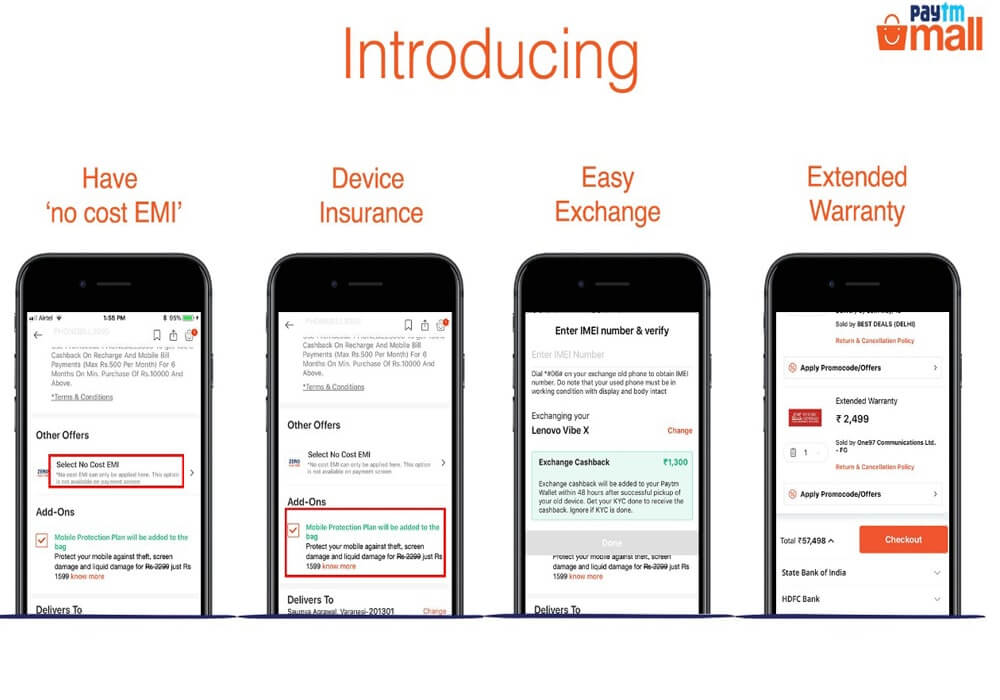
Paytm Mall Aims To Drive 25% Growth In Gross Revenue For Partner Retail Stores And Dominate Smartphones, Appliances Market By End Of FY18
Paytm Mall, the ecommerce arm of digital payments giant Paytm, has announced its plans to introduce new services, including No Cost EMIs, Device Insurance, Extended Warranty on products, and Easy Exchange across its online platform as well as offline partner stores.
With new additions to its portfolio, the ecommerce company, which is growing fast, aims to drive over 25% growth in gross revenue for its partner retail stores and gain a dominating market share in smartphones, appliances and consumer electronics by the end of FY18.
In a media statement, Paytm Mall said that its omnichannel No Cost EMI service, launched in partnership with 13 leading banks and financial institutions, will allow over 10 Mn customers to buy products on EMI.
Paytm Mall plans to offer EMIs worth $147 Mn (INR 1,000 Cr) across two Mn products from 60 leading brands by the end of the next quarter. It will also offer an “Easy Exchange” policy across 7,000 pin codes and affordable Device Insurance and Extended Warranty services, starting at $2.92 (INR 199), across more than 75,000 partner retail stores.

Amit Sinha, chief operating officer, Paytm Mall, said, “We want to leverage retail technology to recreate the same convenience and trust at scale and make shopping truly affordable for the Indian masses. The variety and depth of our new services will help brand authorised retailers offer this experience to millions of potential customers while opening newer products to a wider audience.”
Paytm Mall: Increasing Ecommerce Penetration
Paytm Mall started operating as a consumer shopping app in February 2017. In March that year, Alibaba invested over $200 Mn in the company. Recently, the company raised $445 Mn in a funding round by SoftBank and Alibaba at a valuation between $1.6 Bn-$2 Bn to become a unicorn.
Also recently reports surfaced that SoftBank has held an initial round of discussions to invest as much as $3 Bn in Paytm Mall.
To onboard more offline sellers, Paytm Mall committed $5 Mn under its Retailer Inclusion Programme in August 2017. The programme is geared towards enabling sellers to generate additional sales through Paytm Mall.
Later, in December 2017, it was reported that Paytm was planning to invest around $2.5 Bn in its ecommerce arm within the next three to five years.
As far as numbers are concerned, at the time of its launch, the ecommerce platform had over 140K sellers. As per the company website, it currently has over 10 Cr customers, 500 categories, and has already reached 39K pin codes in India.
In the past few months, Paytm Mall launched a new model of retail which enables customers to walk into brick-and-mortar stores, scan product QR codes, browse through information, and make purchases via the Paytm Mall app.
Also, the company recently introduced its PoS (Point of Sales) as a unified solution that enables it to manage a store inventory on the cloud with complete visibility of available/required stock, pending and serviced orders, instant customer billing/payments, new offers and exclusive promotions such as free extended warranty and device insurance.
Paytm Mall has partnered with fashion and lifestyle brand Red Tape, BigBasket and logistics startup XpressBees as they continue to build their respective ecosystems in the country.
Paytm Mall claims that it will close FY18 at a GMV run rate of $3 Bn, with a target of reaching a $10 Bn run rate by the end of FY19. The company plans to benefit from high-GMV products like laptops and smartphones, high-repeat purchases like groceries and FMCG, and impulse-driven purchases like fashion.
As Flipkart-Walmart deal disrupts the startup ecosystem, Indian ecommerce is currently a market worth $200 Bn. With a huge addressable market and Walmart-Flipkart and Amazon busy fighting for dominance, Paytm Mall has a huge scope to scale up its operations in the country.































 Ad-lite browsing experience
Ad-lite browsing experience